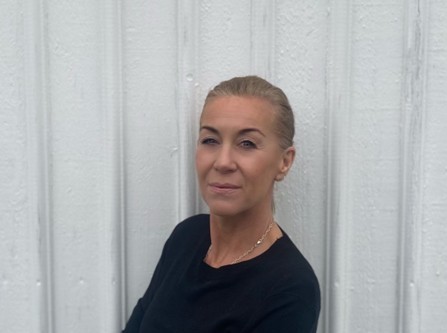Inspirational Person of the Week - Jonas Regnér, former CEO of Saltå Kvarn
How the organization succeeded with "sustainable leadership with Lean" in practice.


Jonas, during your almost 5 years as CEO of Saltå Kvarn you implemented LEAN throughout the organization and developed leadership through, among other things, KTH's "Sustainable leadership with LEAN". What insights have you and the organization gained from the above work?
We gained many valuable experiences and insights and some are:
*how important it is as a leader to "see the game" and "see the person". That is, be interested, be present and stay informed in order to understand all parts of the business, the people in it, and the different perspectives that always exist.
*the courage to use tough care. This means that as a leader, you act as a role model and make visible behaviors or attitudes you have seen that deviate from the organization's guiding principles and standards. It also applies to me as a leader to admit mistakes or use myself as an example when I have shown the wrong attitude.
All of the above assumes that the organization's principles are known and established throughout the company, that they are kept alive every day in every team, but also that there is mutual trust and openness so that your colleagues and employees also contribute with corresponding tough care in relation to you as a manager.
*that methodical improvement work has a major impact on profitability, increased customer value and engagement in the organization. That it is not a quick fix but something that is jointly created systematically over time until it is an established way of working (principle) and an integrated part of the company's culture (standard).
Do you have any tips or tricks you would like to share about KTH sustainable leadership with LEAN?
During the training, we stumbled upon two concepts that immediately became important to us: FFA and LFL.
*As a manager and leader, it is your responsibility to contribute to the organization's goals through FFA, which stands for: providing Prerequisites to achieve the goals, contributing with increased Ability and making visible Attitudes that deviate from the business's principles or values. This is called "leadership contribution".
As an employee, it is your responsibility to contribute to the organization's goals through LFL, which stands for: taking responsibility to Deliver against set goals, to actively contribute to continuous Improvement and improvement work in the business, and to increase your own Learning. This is called employee contribution.
Through clear goals broken down at all levels, known guiding principles, clear expectations, openness and dialogue through regular one2ones between manager and employee, we increased profitability, engagement and got 4 years with steadily increasing employee index as a bonus. Win-win-win in other words.
What insights do you have from the above in combination with your experiences as a UGL instructor for over 10 years?
What has driven me for all these years is to see how far you can move an organization and business towards high engagement, high participation and the level of high-performing teams. Because I work in "reality" 50 weeks a year but have also had the privilege of combining it with leading annual UGL training courses for a few weeks over the past 10 years, I stand with one foot in empiricism and one foot in theory. It has given me many valuable insights as a leader, manager and colleague.
Do you have any tips for how to achieve this?
- Read the book LedarStegen: 5 steg till modigare ledarskap med struktur och tuff omsorg by Bengt Savén.
- Try the following behaviors in your role as manager and/or employee and see what results it gets:
-Live as you learn
-Challenge set goals
-Act on data
-Go and See
-Support through a coaching approach
-Follow up on deviations from standards
Contact
What challenges are you facing today? - We would love to hear from you!





